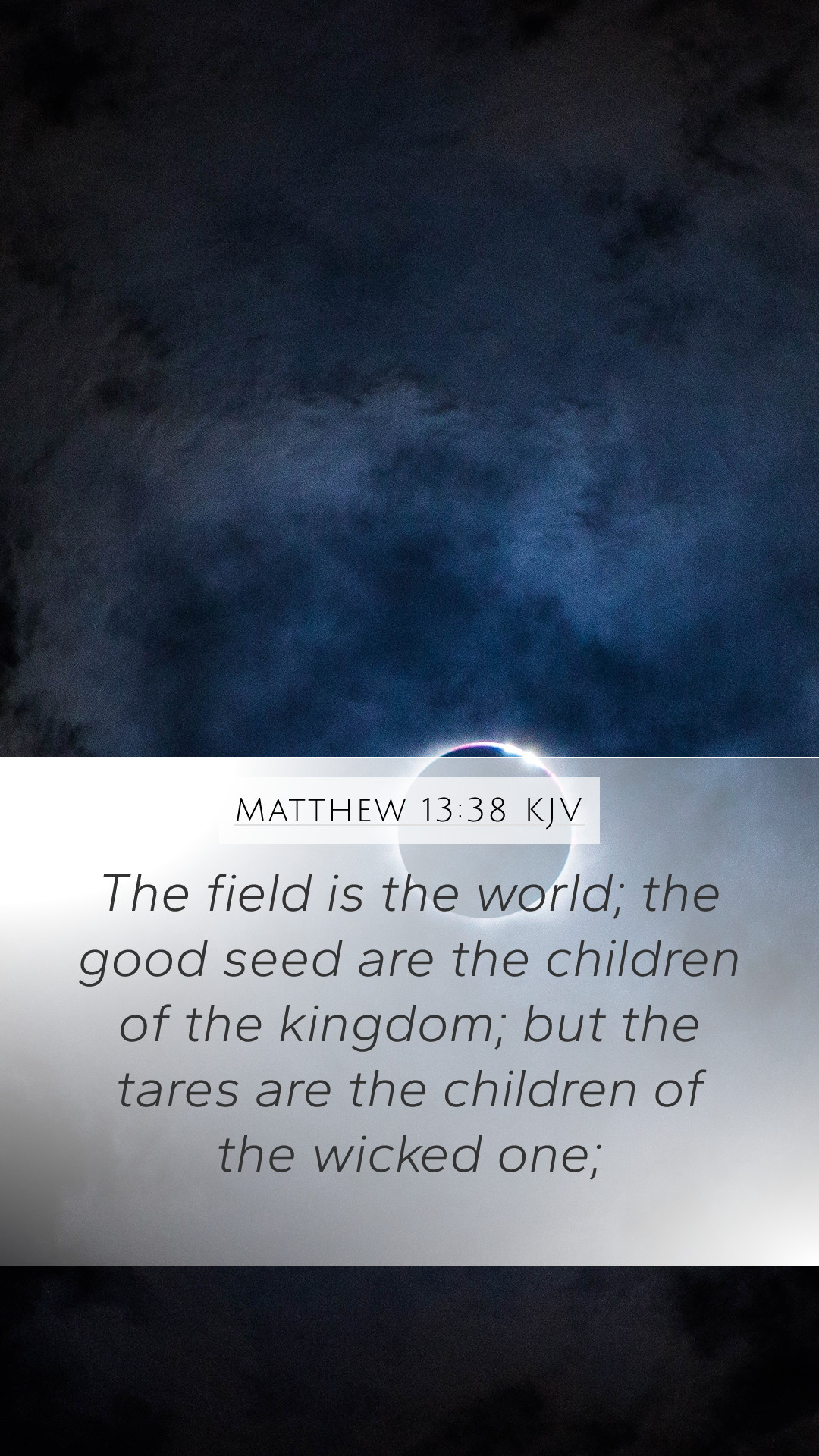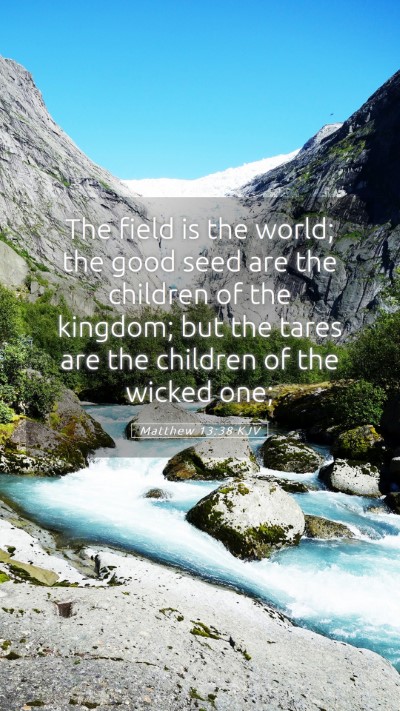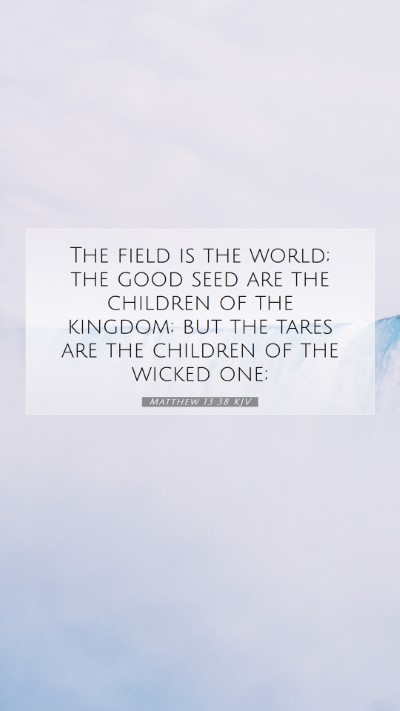Matthew 13:38 - Understanding the Biblical Meaning
In Matthew 13:38, Jesus provides insight into the parable of the weeds, where He interprets the figures and symbols used in the story. This verse states:
"The field is the world, and the good seed stands for the sons of the kingdom. The weeds are the sons of the evil one."
Verse Context
This verse is located in a passage where Jesus explains the meaning behind the parable of the wheat and the tares (or weeds). This parable illustrates the coexistence of good and evil in the world until the final judgment. By using agricultural imagery, Jesus communicates profound truths about His kingdom and the nature of the world.
Bible Verse Meanings and Interpretations
The interpretations of Matthew 13:38 draw on various public domain commentaries. Here are combined insights:
-
Matthew Henry's Commentary:
Henry underscores that the field represents the world where the Gospel is preached. The good seed symbolizes the righteous, those who are part of God's kingdom, while the tares represent the wicked who disrupt and challenge the influence of the righteous. This commentary emphasizes the divine justice that will ultimately separate the two at the end of times.
-
Albert Barnes' Notes:
Barnes expounds on the idea that the world is a collective field where both believers and non-believers exist. He explains that while the wheat (representing the good) flourishes, the weeds (representing the evil) also grow unrestrained. The existence of both illustrates God’s patience and the necessity of human free will.
-
Adam Clarke's Commentary:
Clarke provides an in-depth look at the symbolism of 'the children of the kingdom' and 'the children of the wicked one.' He highlights that the distinction between these two groups will be evident at the time of harvest, or the final judgment, reinforcing the certainty of divine intervention and differentiation.
Significance of the Verse
This verse is pivotal for understanding the larger narrative of Jesus’ teaching on judgment and moral integrity in the world. It serves several purposes:
- It reassures believers of their identity as part of the kingdom of God amidst evil.
- It prepares listeners for the reality of judgment and encourages moral living.
- It illustrates the coexistence of good and evil as an integral part of God's plan until the end of time.
Bible Study Insights
For those engaged in Bible study groups or seeking online Bible study, exploring Matthew 13:38 can lead to discussions about the nature of good and evil in the present world. Here are some insights:
- Discuss how the parable of the wheat and tares might influence contemporary Christian living.
- Reflect on personal experiences with "weeds" in one’s life—what challenges arise when acting as good seed in a troubled world?
- Consider how this verse relates to other biblical teachings on righteousness and judgment.
Cross References
Matthew 13:38 is rich with connections to other scripture passages, including:
- Matthew 13:24-30: The parable of the wheat and the weeds
- John 8:44: Discussion of children of the devil
- Galatians 6:7: Reaping what one sows
Conclusion
The analysis of Matthew 13:38 through various biblical commentaries reveals profound truths about the coexistence of good and evil as a reflection of the larger narrative of God’s kingdom. For those seeking Bible verse explanations and Bible verse understanding, this verse encourages believers to remain steadfast in their faith while recognizing the ultimate accountability before God.
As you engage with this scripture, consider how these insights can inform your daily life and strengthen your faith.


